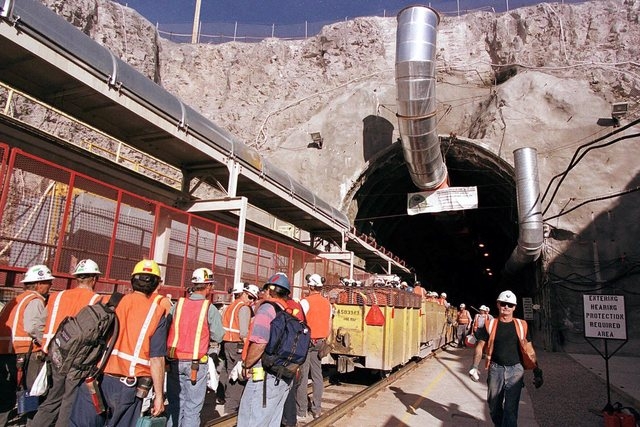Bill seeks to put Yucca Mountain back on the agenda
WASHINGTON — A bill being prepared in Congress seeks to put Yucca Mountain back on the table as lawmakers seek to break a gridlock over managing and disposing of the nation’s nuclear waste.
Rep. John Shimkus, R-Ill., said Tuesday legislation he is writing could be ready for House floor votes by the summer. He said details still were being formed. Nuclear industry officials familiar with the effort say it could include financial incentives for Nevada to drop its long-held opposition to the once-proposed repository, provisions to complete a site license review and land withdrawals needed to advance the project.
Edward Davis, president of the Pegasus Group, a consulting firm, said Monday at a conference sponsored by the Institute of Nuclear Materials Management that he was told the Yucca legislation was “one of the top three or four priorities” of the House Energy and Commerce Committee this year.
But at the same conference, Energy Department assistant secretary Peter Lyons said the Obama administration remains opposed to the Yucca site, calling it “unworkable.”
“We need to work toward new solutions,” Lyons said, but needs Congress to change the law so alternatives can be explored.
Shimkus, whose state generates the most electricity from nuclear power and holds the most nuclear waste at six power stations, is regarded as the leading proponent of reviving the Yucca Mountain program that was mothballed five years ago by President Barack Obama. He is chairman of the House environment and the economy subcommittee.
The proposed legislation comes as new talks get underway to overcome gridlock that has stymied nuclear waste legislation in recent years. Shimkus said it could become part of a compromise that would advance interim storage of nuclear waste accumulating at power plants around the country, as well as a permanent repository.
When it comes to Yucca Mountain, “we can move almost anything on the House floor and I think have a pretty good vote,” Shimkus said. Test votes in recent years showed better than two-to-one support for the project even though it largely exists only on paper after being dismantled.
Shimkus and other Yucca proponents say Obama effectively threw out 30 years of studies and $15 billion of development work at the Nevada site. Critics charge the project was forced on Nevada and the site is unsafe and risky.
The House and Senate now are controlled by Republicans, and the leading opponent of Yucca Mountain, former Majority Leader Sen. Harry Reid, D-Nev., now is leader of the minority. Sens. Lisa Murkowski, R-Alaska, and James Inhofe, R-Okla., who became chairmen of energy-related committees, said last week that nuclear waste was among the issues on their agendas.
In the Senate now, “You don’t have a majority leader that obviously kind of bans all discussion,” Shimkus said, referring to Reid. “That’s the difference, at least there can be some discussion.”
Reid was not available on Tuesday but experts say he still wields considerable power as leader of the Senate minority. He repeatedly has vowed that the Yucca project will never become a reality as long as he is senator.
















